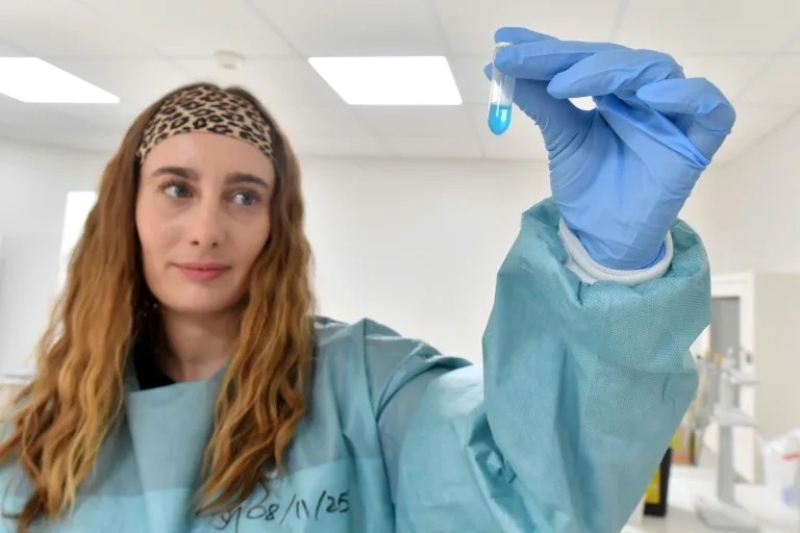- Dhaka’s air again turns ‘unhealthy’ Thursday morning |
- SC reinstates caretaker govt system in BD Constitution |
- Bangladesh can't progress sans women’s safety online & offline |
- U.S. trade deficit drops 24% in Aug as tariffs reduce imports |
French Scientists Explore mRNA’s Potential to Treat Cancer

In a laboratory in Orleans, France, scientists are exploring the potential of messenger RNA (mRNA) — best known for its role in Covid-19 vaccines — to develop a breakthrough treatment for one of the deadliest forms of cancer.
Messenger RNA are molecules that carry genetic instructions from DNA in every cell to produce specific proteins.
“For cancer, this message stimulates the patient’s own ability to fight tumours,” said Dimitri Szymczak, project manager at the INSERM ART lab in Orleans.
Although mRNA was discovered in the early 1960s, it gained global recognition during the Covid-19 pandemic, when it enabled the rapid development of next-generation vaccines, earning the medicine Nobel Prize in 2023.
Today, most mRNA research focuses on cancer vaccines, but its applications go far beyond. “It can boost immunity, compensate for malfunctioning cells, target rare or genetic diseases, and even treat allergies,” said Chantal Pichon, head of the ART lab.
Worldwide, more than 200 mRNA clinical trials are underway, led by both pharmaceutical giants and start-ups, particularly in the United States, China, and Japan. France, Pichon added, has “some of the best fundamental research teams working on mRNA.”
At the Orleans lab, scientists create different mRNA molecules to test their safety and effectiveness on cells.
Innovative Approaches
Most experimental RNA is produced in test tubes, a costly process often patented by US companies. Some French researchers are experimenting with producing RNA in yeast, potentially reducing costs by 10 to 50 times. These molecules are then carefully purified to meet pharmaceutical standards.
One team is targeting pancreatic cancer, known for its extremely low survival rate. Survival has increased only modestly, from 5 per cent in 2000 to 10 per cent today, highlighting the limited effectiveness of chemotherapy and immunotherapy, explained ART gastroenterologist Birane Beye.
To boost treatment success, researchers are combining an mRNA vaccine with ultrasound technology. Powerful ultrasound creates vibrations in the tissue that generate gas bubbles. When these bubbles burst, they break down the barrier around the pancreatic tumour — likened to a “bunker” — allowing the mRNA vaccine to penetrate.
So far, early experiments show that ultrasound can improve the delivery of mRNA to the pancreas and enhance the effectiveness of conventional treatments. The team now hopes this approach will increase survival rates for pancreatic cancer patients.
Thursday marks World Pancreatic Cancer Day, raising awareness about one of the most aggressive and lethal cancers worldwide.

